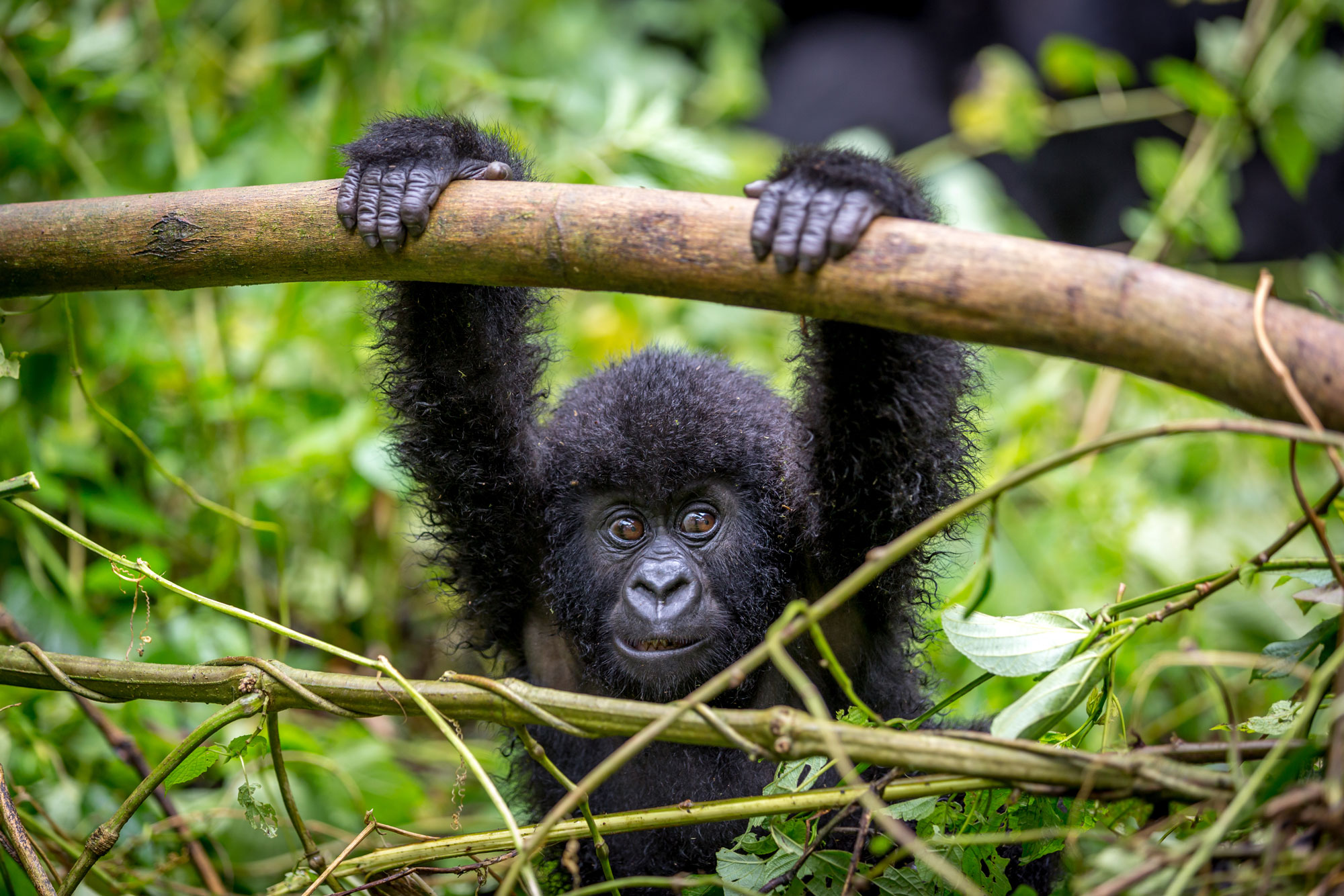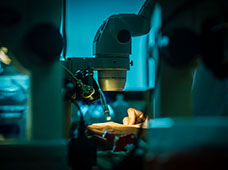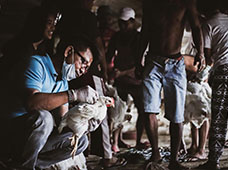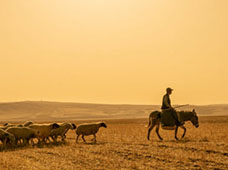ARTICLE
Innovating for
wildlife health
In 2021, the World Organisation for Animal Health (WOAH, founded as OIE) expanded its One Health agenda by intensifying its activities to protect wildlife health, through innovative awareness-raising campaigns and capacity building at country-level.
Awareness-raising radio campaign on the animal-human interface
Rosa: Hi, Jean, I’m happy to see that you’re back in the village. You’re not sick anymore!
Jean: Hi Rosa, fighting Ebola was not easy. But spending time at the treatment centre really gave me time to think.
Rosa: Think? About what?
Jean: Rosa, if I had not brought that dead animal from the forest, I would not have endangered myself and my village. I brought the virus to the village! Everyone got sick because of what I did.
This is the type of exchange you can hear by tuning in to local radio stations in rural Guinea and the Democratic Republic of Congo. In tropical forested areas, populations can be at higher risk of exposure to diseases transmitted through contact with live wild animals and through the consumption of bushmeat. The radio hosts were trained to use the radio production guide that we produced in 2021 in the framework of its EBO-SURSY Project, funded by the European Union. The radio guide was also used to train youth reporters and provide them with practical tools for producing radio shows that raise community awareness of viral haemorrhagic fevers such as Ebola and Lassa fever, as well as their paths of transmission. The radio shows encourage community members to reach out to veterinarians before consuming locally hunted animals, or to alert wildlife authorities if they spot dead or sick animals in the forest. As radio is often the best way to communicate crucial information to remote communities, this radio guide is key to support radio professionals in spreading knowledge on disease prevention measures to those who live at the interface with wildlife and their habitat.
Radio, a precious link between isolated communities and the rest of the world, also fosters feedback from the community. By raising awareness and increasing knowledge about disease spillover, the radio campaign encourages communities to adopt best practices to lessen the risk of disease transmission, and become proactive members of the surveillance system of their community.
Strengthening zoonoses surveillance and management at local level
The EBO-SURSY Project, one of the main wildlife-focused initiative of the World Organisation for Animal Health, aims to improve early warning systems and prevent viral haemorrhagic fevers (such as Ebola, Lassa Fever, Marburg virus disease, Rift valley fever, and Crimean-Congo haemorrhagic fever) from spreading between animals and humans.
In Guinea, following an Ebola virus disease alert in 2021, a rapid and efficient investigation mission in wildlife was deployed thanks to the activities carried out by the EBO-SURSY Project since 2017. These activities include the continuous trainings of agents from national institutions both in the field and in laboratories and the establishment of solid, multisectoral partnerships at different levels. Guinea can now count on reactive, and highly qualified national field teams that are able to rapidly respond to trigger alert outbreak mechanisms and improve the response to other zoonotic disease outbreaks, such as COVID-19.

Deforestation leads to habitat loss for wildlife, increasing the likelihood of contact between displaced wild animals, with livestock and human communities.
Strengthening our wildlife health framework
The EBO-SURSY Project is one example of the efforts we have deployed to help our Members prepare for health risks at the animal-human-environment interface. These risks are increasing as more contacts between humans, wildlife and livestock are occurring, following unsustainable human activities such as deforestation that lead to wildlife habitat loss and fragmentation.
Because Veterinary Services play an essential role in the prevention of disease emergence and in ensuring food security and safety, WOAH and its Members adopted measures in 2021, at WOAH’s 88th General Session, (Resolution 31) to support Veterinary Services in achieving One Health resilience. The resolution emphasised the importance of developing, investing in, and improving wildlife health management, strengthening existing partnerships in the wildlife and environment sectors, and implementing the One Health approach.
We have therefore been working on converting the Wildlife Health Framework developed in 2020 into a functional programme that will create a political, policy and scientific environment to reinforce One Health strategies.
This will allow Veterinary Services to implement effective wildlife health monitoring and surveillance to manage the risk of disease emergence and protect the health of wildlife species. And by protecting wildlife health, we contribute to protecting livestock and human health.
ALSO READ

Helping research for better preparedness
Discover

Encouraging global cooperation
Discover

Engaging for climate
Discover
